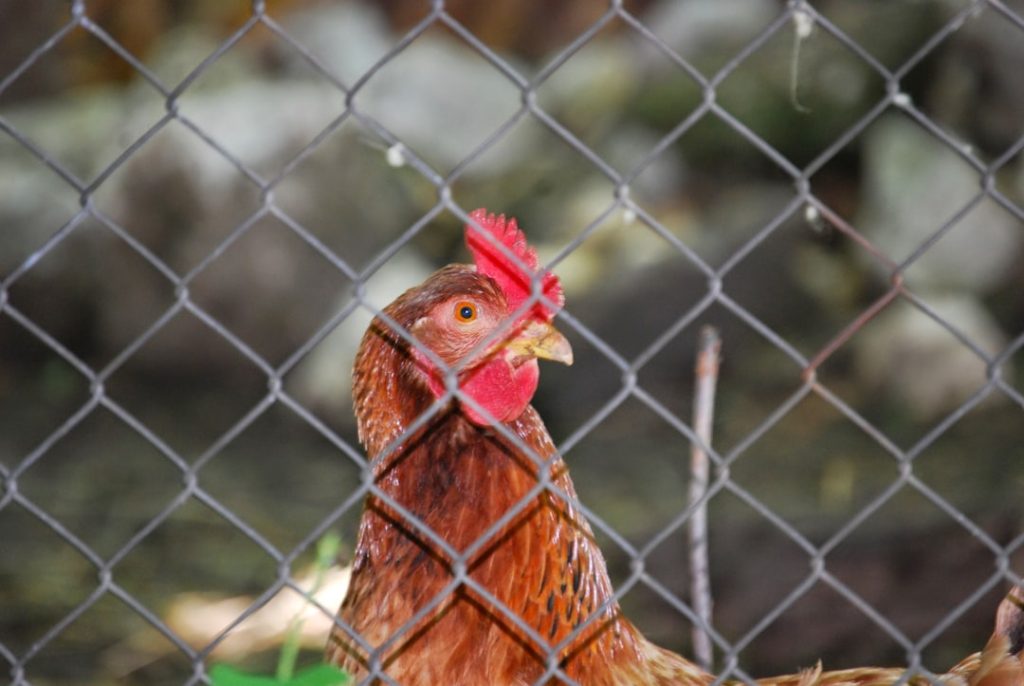Chickens are naturally curious and active animals that exhibit a variety of behaviors, including scratching and digging. This behavior is instinctual and serves several purposes for the chickens. They scratch and dig to forage for food, such as insects, seeds, and small plants.
This behavior also helps them to create dust baths, which are essential for maintaining their feather health and controlling parasites. Additionally, scratching and digging are natural ways for chickens to explore their environment and engage in natural behaviors. Understanding the reasons behind a chicken’s digging behavior is crucial in addressing and managing it effectively.
By recognizing that digging is a natural and necessary behavior for chickens, you can approach the issue with empathy and find ways to accommodate their needs while also protecting your yard or garden. Providing designated areas for scratching and digging, as well as enrichment activities, can help redirect their natural behavior in a more suitable manner. Chickens are social animals that thrive in environments that allow them to express their natural behaviors.
By understanding and accommodating their natural instincts, you can create a harmonious environment for both the chickens and your yard.
Table of Contents
- 1 Creating designated areas for chickens to scratch and dig
- 2 Providing enrichment and activities for chickens
- 3 Using barriers to prevent chickens from accessing certain areas
- 4 Implementing deterrents to discourage digging behavior
- 5 Properly maintaining the yard to minimize digging opportunities
- 6 Seeking professional advice for persistent digging issues
- 7 FAQs
- 7.1 What are some effective methods for keeping chickens from digging in the yard?
- 7.2 Why do chickens dig in the yard?
- 7.3 How can I create a designated dust bathing area for my chickens?
- 7.4 What are some enrichment activities I can provide to keep my chickens from digging in the yard?
- 7.5 Are there any plants or landscaping features that can help deter chickens from digging in the yard?
Key Takeaways
- Chickens are natural foragers and scratchers, exhibiting these behaviors to find food and explore their environment.
- Designated areas for scratching and digging, such as a sandbox or loose soil, can help redirect chickens’ natural behaviors.
- Enrichment activities like hanging treats or providing toys can keep chickens entertained and reduce their desire to dig in unwanted areas.
- Barriers like fencing or netting can be used to keep chickens out of specific areas where digging is not desired.
- Deterrents such as citrus peels or cayenne pepper can be used to discourage chickens from digging in certain areas.
- Regularly maintaining the yard by filling in holes and keeping the ground level can minimize opportunities for chickens to dig.
- If digging issues persist, seeking professional advice from a veterinarian or animal behaviorist can provide additional solutions and support.
Creating designated areas for chickens to scratch and dig
Designated Scratching and Digging Areas
One effective way to manage a chicken’s digging behavior is to provide designated areas where they can scratch and dig freely. By creating a designated space for this natural behavior, you can protect other areas of your yard or garden from damage while still allowing the chickens to engage in their natural instincts. Designated scratching and digging areas can be created using materials such as sand, dirt, or mulch.
Key Considerations for Designated Areas
These areas should be spacious enough to accommodate multiple chickens at once and should be located in a shaded area to provide protection from the elements. You can also consider adding natural elements such as logs, branches, or rocks to the designated area to encourage more natural foraging behaviors.
Benefits of Designated Scratching and Digging Areas
By providing a designated space for scratching and digging, you can redirect the chickens’ natural behavior in a controlled manner while minimizing the impact on other areas of your yard. This approach allows the chickens to engage in their natural instincts while also preserving the aesthetic and functional aspects of your outdoor space.
Providing enrichment and activities for chickens

In addition to creating designated areas for scratching and digging, providing enrichment and activities for chickens can help redirect their natural behaviors in a positive way. Enrichment activities can include hanging treats or vegetables for the chickens to peck at, providing toys such as hanging mirrors or balls, or creating obstacles for them to navigate. Enrichment activities not only provide mental stimulation for the chickens but also encourage them to engage in more natural behaviors, such as pecking, exploring, and problem-solving.
By offering a variety of enrichment options, you can help satisfy the chickens’ natural instincts and reduce their desire to dig in unwanted areas. Incorporating enrichment activities into the chickens’ environment can also improve their overall well-being and reduce stress-related behaviors. By keeping the chickens mentally and physically stimulated, you can create a more balanced and contented flock that is less likely to exhibit destructive digging behaviors.
Using barriers to prevent chickens from accessing certain areas
Another effective strategy for managing a chicken’s digging behavior is to use barriers to prevent them from accessing certain areas of your yard or garden. Barriers can be physical, such as fences or netting, or visual, such as plants or decorative elements. When using physical barriers, it’s important to ensure that they are secure and tall enough to prevent the chickens from flying over or climbing under them.
Netting can be used to cover specific areas, such as flower beds or vegetable gardens, to protect them from the chickens’ digging activities. Visual barriers, such as planting dense shrubs or using decorative fencing, can also help deter chickens from accessing certain areas. By creating visual obstacles, you can redirect the chickens’ attention away from sensitive areas and encourage them to focus on designated scratching and digging spaces instead.
Using barriers strategically can help protect specific areas of your yard or garden while still allowing the chickens to roam freely in other parts of the outdoor space. By creating physical or visual boundaries, you can effectively manage the chickens’ access and minimize the impact of their digging behavior on sensitive areas.
Implementing deterrents to discourage digging behavior
In addition to using barriers, implementing deterrents can also help discourage chickens from engaging in unwanted digging behavior. Deterrents can take various forms, such as noise-making devices, motion-activated sprinklers, or natural repellents. Noise-making devices can startle the chickens when they approach sensitive areas, causing them to retreat and avoid those locations in the future.
Motion-activated sprinklers can provide a gentle but effective deterrent by spraying water when the chickens come too close to restricted areas. Natural repellents, such as citrus peels or strong-smelling herbs, can also be used to create an unpleasant scent that deters the chickens from digging in specific spots. By implementing deterrents strategically, you can create an environment that discourages unwanted digging behavior while still allowing the chickens to roam freely in other parts of your yard or garden.
Deterrents provide a gentle but effective way to redirect the chickens’ attention away from sensitive areas and minimize the impact of their digging activities.
Properly maintaining the yard to minimize digging opportunities

Creating a Controlled Environment
Regularly mowing the grass, trimming vegetation, and removing debris can help create a more controlled environment that discourages chickens from digging. This approach helps to eliminate potential digging spots, making it less likely for chickens to engage in destructive behavior.
Adding Physical Barriers and Ground Coverings
In addition to regular maintenance, you can also consider adding physical barriers or ground coverings to sensitive areas to further minimize opportunities for digging. Mulch, gravel, or landscaping fabric can be used to cover vulnerable spots and create a less appealing surface for the chickens to dig in.
Encouraging Controlled Behavior
By properly maintaining your outdoor space and minimizing opportunities for digging, you can create a more controlled environment that encourages the chickens to focus on designated scratching and digging areas instead. This approach helps protect sensitive areas while still allowing the chickens to engage in their natural behaviors in a controlled manner.
Seeking professional advice for persistent digging issues
If you are experiencing persistent digging issues with your chickens despite implementing various management strategies, it may be beneficial to seek professional advice from a veterinarian or animal behaviorist. These professionals can provide valuable insights into the underlying reasons for the chickens’ behavior and offer tailored solutions to address the issue effectively. A veterinarian can assess the overall health and well-being of your chickens to rule out any underlying medical conditions that may be contributing to their digging behavior.
An animal behaviorist can provide expert guidance on understanding and modifying the chickens’ behavior through positive reinforcement training techniques. By seeking professional advice, you can gain a deeper understanding of your chickens’ behavior and receive personalized recommendations for managing their digging habits. Professional guidance can help you develop a comprehensive plan that addresses the root causes of the behavior and creates a more harmonious environment for both the chickens and your outdoor space.
In conclusion, understanding and managing a chicken’s digging behavior requires a combination of empathy, strategic planning, and proactive measures. By creating designated areas for scratching and digging, providing enrichment activities, using barriers and deterrents, properly maintaining your yard, and seeking professional advice when needed, you can effectively address this natural behavior while preserving the integrity of your outdoor space. With thoughtful management strategies in place, you can create a harmonious environment that allows your chickens to engage in their natural instincts while minimizing the impact of their digging behavior on sensitive areas.
If you’re looking for more tips on keeping chickens, you might want to check out this article on 10 essential features for a chicken coop. It provides valuable information on how to create a safe and comfortable environment for your chickens, which can help prevent them from digging in your yard.
FAQs
What are some effective methods for keeping chickens from digging in the yard?
Some effective methods for keeping chickens from digging in the yard include providing them with a designated dust bathing area, using chicken wire or hardware cloth to create barriers around sensitive areas, and providing plenty of enrichment and activities to keep them occupied.
Why do chickens dig in the yard?
Chickens dig in the yard as a natural behavior to forage for food, dust bathe, and create comfortable nesting spots. It is important to understand and accommodate for these natural behaviors when keeping chickens.
How can I create a designated dust bathing area for my chickens?
To create a designated dust bathing area for your chickens, you can use a shallow container filled with sand, dirt, and diatomaceous earth. Place the container in a shaded area and encourage your chickens to use it by sprinkling some treats or mealworms in the area.
What are some enrichment activities I can provide to keep my chickens from digging in the yard?
Some enrichment activities you can provide to keep your chickens from digging in the yard include hanging treats or vegetables for them to peck at, providing them with a variety of perches and roosts, and offering them toys such as hanging mirrors or balls.
Are there any plants or landscaping features that can help deter chickens from digging in the yard?
Plants with prickly or thorny foliage, such as rose bushes or holly bushes, can help deter chickens from digging in certain areas of the yard. Additionally, creating raised garden beds or using decorative rocks or gravel can help protect sensitive areas from chicken digging.
Meet Walter, the feathered-friend fanatic of Florida! Nestled in the sunshine state, Walter struts through life with his feathered companions, clucking his way to happiness. With a coop that’s fancier than a five-star hotel, he’s the Don Juan of the chicken world. When he’s not teaching his hens to do the cha-cha, you’ll find him in a heated debate with his prized rooster, Sir Clucks-a-Lot. Walter’s poultry passion is no yolk; he’s the sunny-side-up guy you never knew you needed in your flock of friends!







